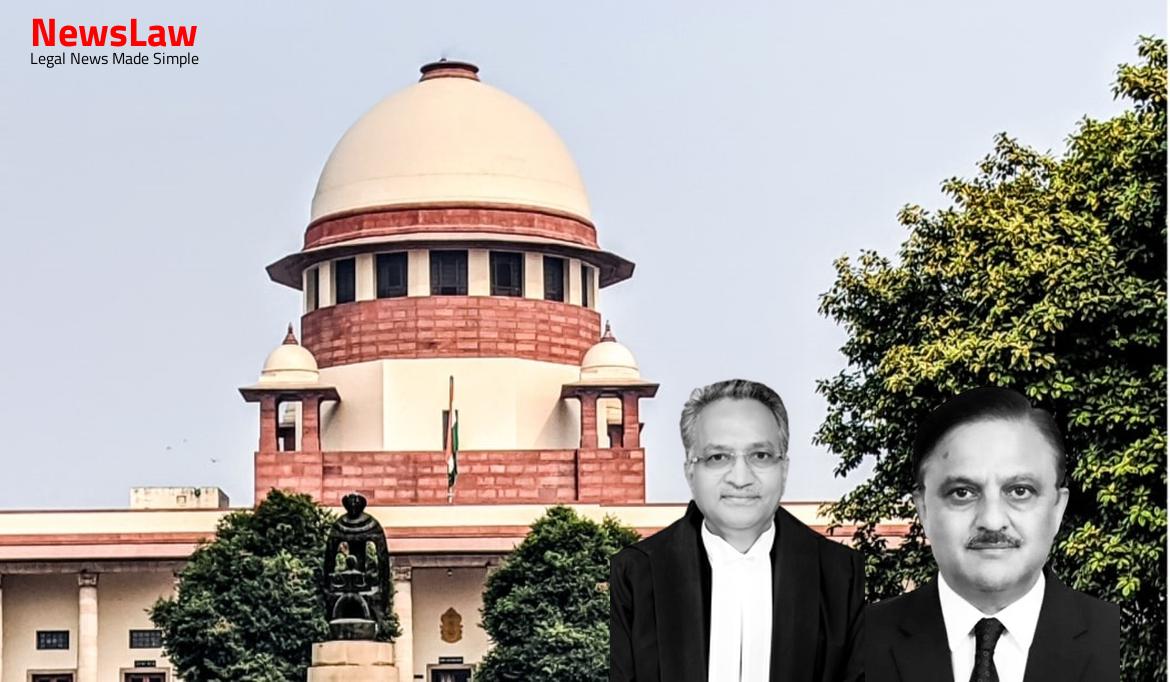In a recent legal case, the court delves deep into the complexities of interchange fee taxation, analyzing various aspects of service tax law and the determination of taxable services. The focus is on the court’s meticulous legal analysis, shedding light on crucial factors that impact the taxation of interchange fees. This blog post explores the key insights from the court’s perspective on this intricate legal issue.
Facts
- The Respondent is a Bank and the interchange fee is considered as interest earned in credit card transactions.
- The Tribunal set aside the Final Orders by which the Bank was found liable to pay service tax, penalty, and interest on the interchange fee.
- The Bank is registered under various categories including banking and financial services, charge card payment services, etc.
- Show Cause Notices were issued to the Bank regarding service tax on the interchange fee.
- The Bank filed its explanation in response to the Show Cause Notices.
- The Tribunal followed the Order dated 20.11.2019 which is being challenged in Civil Appeal No 89 of 2021.
- Not paying service tax was considered a positive act on the part of the respondent, even if they believed the charges were not liable to service tax.
- The respondent should have approached the Department with details if they believed charges were not taxable, allowing the Department to verify the claim.
- Under self-assessment, the responsibility of proper assessment lies with the assessee under Section 70.
- The period of limitation starts from the Department’s knowledge.
- Reference was made to the judgment in Commissioner of Central Excise, Vishakhapatnam v. Mehta and Company.
- Penalty was deemed justified by the Commissioner.
- The demand for service tax, interest under Section 75, penalty under Section 78, and a penalty of Rs. 10,000 under Section 77(2) were confirmed by the Commissioner.
Also Read: Analysis of Burden of Proof in Wrongful Termination Cases
Issue
- The issue at hand is whether the finding of suppression by the Commissioner, challenged by the respondent, was justified in relation to the period mentioned in the Show Cause Notice dated 24.04.2013.
Also Read: Legal Analysis: Exam Answer Key Discrepancy
Arguments
- The appellant argues that they are precluded from challenging the Order of the Tribunal as they did not challenge a previous decision.
- Case law from Union of India v. Kaumudini Narayan Dalal is cited, emphasizing that the Revenue cannot accept a judgment in one case and challenge it in others without just cause.
- The Tribunal supported the respondent’s contention that the activity of the issuing bank may be considered a service and covered by the taxing entry for credit card services.
- The Tribunal referred to the judgment in ABM Amro, stating that the issue had been conclusively decided against the Revenue in that case.
- It is pointed out that the interchange fee has already been subjected to service tax in the hands of the acquiring bank.
- The respondent contends that interchange fee should be treated as interest rather than consideration for a service.
- Inspiration is drawn from a U.S. Tax Court judgement regarding interchange fee.
- The respondent argues that MDR and interchange fee are separate services in credit card transactions.
- The respondent claims that the Principal Commissioner found they performed services and earned interchange fee.
- The Department’s case in the Show Cause Notice differs from the findings in the impugned Order regarding the nature of the interchange fee.
- Service Tax inception and evolution are discussed in relation to interchange fee.
- The appellant disputes the respondent’s claim that their activity is a transaction in money.
- Arguments are made regarding double taxation and the imposition of service tax on interchange fee.
- The reliance on the Tribunal’s decision in ABN Ambro Bank is challenged due to alleged oversight of relevant legal definitions.
- The respondent’s assertion of double taxation in relation to interchange fee and MDR is refuted based on the sequence of payments.
Also Read: Judicial Analysis on Back Wages in Employee Caste Verification Case
Analysis
- Section 66 of the Act imposes a service tax at the rate of twelve percent on the value of taxable services specified in various clauses of Section 65.
- Section 67 provides principles for determining the value of taxable services subject to service tax, with specific provisions for different scenarios of consideration.
- Section 68 establishes the liability to pay service tax, with provisions for certain specified taxable services to be paid by a designated person and the remaining amount to be paid by the service provider.
- The Service Tax Rules, 1994, specifically Rule 5, outline the inclusion of all expenditure and costs incurred in providing taxable services as part of the consideration for the tax.
- Section 65B defines ‘service’ as any activity done for consideration, excluding specific activities detailed in the clause.
- Explanation 2 clarifies transactions in the context of money do not include activities where a separate consideration is charged, such as conversion of currency.
- The Service Tax (Determination of Value) Rules, 2006 provide guidance on determining the value of services for taxation purposes.
- Section 65(105)(zzzw) specifies credit card, debit card, charge card, or other payment card services as taxable services provided by one person to another in any manner.
- Interest is defined as compensation for the use or retention of money belonging to or owed to another.
- Interest accrues from day to day and is apportionable in respect of time between persons entitled to the principal.
- Interest is a form of compensation for the use or retention of money.
- The law requires wilful suppression or misstatement of facts to be considered as a violation with intent to evade duty.
- The duty levied forms part of the total cost of the manufacturer or producer.
- Interest is essentially compensation for the use or retention of money.
- Interest can be payable under various circumstances such as through an express agreement, an implied agreement, or as damages for breach of contract.
- Failure to declare information or mere inaction does not constitute wilful suppression.
- Mere failure to pay duties does not necessarily indicate fraud, collusion, or wilful misstatement.
- The period for demanding duty beyond six months requires evidence of fraud, collusion, or wilful misstatement.
- Intention to evade duty needs to be present in cases of wilful suppression of facts.
- A positive act of fraud, collusion, or wilful misstatement is required for extended limitation period to apply.
- A lender of money deprives himself of the use of funds, justifying charging interest.
- Exemption from duty requires specific conditions to be fulfilled as outlined in relevant notifications.
- The service provider may adjust the duty levied on goods and pass it on to the consumer.
- There should be evidence of an intentional attempt to evade duty in cases of wilful suppression of facts.
- The position of law was in a state of flux at the relevant period
- Based on the reasons detailed above, the appeals by Revenue should be dismissed
Decision
- The present case does not warrant remand to the Tribunal.
- The dispute should stand finally concluded at this stage.
Case Title: COMMISSIONER OF GST AND CENTRAL EXCISE Vs. M/S CITIBANK N.A. (2021 INSC 857)
Case Number: C.A. No.-008228 / 2019



